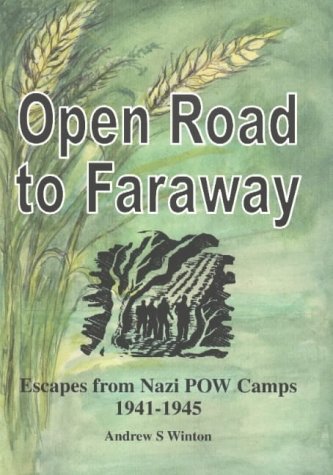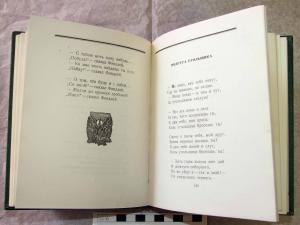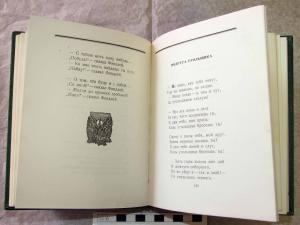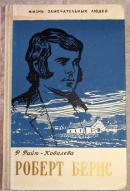Soviet Union
Burns Night on the Oder
“A pity you didn’t have a sheet of paper and paints with you Andy. Isn’t that a great picture?”
“I’ll store it in my memory and send it on to you when I have it finished”
So went the conversation between young Andrew (Andy) S Winton and his uncle as they surveyed with some satisfaction, field of ripening crops on the latter’s farm prior to World War II. This is detailed in Mr Winton’s fascinating memoir ‘Open Road to Faraway: Escapes from Nazi POW Camps 1941-45’ (Cualann Press, 2001)

Andrew Winton was a lover of the Scottish countryside, an art student and a devoted fan of Robert Burns. It was this artist’s ability to recall scenes so vividly to memory that helped sustain him through the dark days of WWII. Drafted into the RAF, Andy became part of a bomber crew. Shot down in 1941, he was to spend the next four years in POW camps. His desire to see his beloved Scotland again drove Andy to escape no less than four times, once in 1942, twice in 44 and the fourth occasion in 1945, this occasion being a success.
That same ability to recall scenes means that – at times – Open Road to Faraway is a difficult read as the author describes scenes of horror and brutality in war-torn occupied Europe. He retells the horrors of Buchenwald where he and a fellow escapee were beaten and tortured as part of a Gestapo interrogation, or Brno, where he witnessed the brutal murder of Gypsies. Difficult to read, but captivating and compelling none the less, these horrors left their mark on young Andy who suffered flashback inspired blackouts in the years following the war.
His final escape in early 1945 saw him picked up by an advancing Russian tank column near the Oder delta on the freezing, winter Baltic. Andy, along with his escape companion Pete, were taken along, with the view that they would be useful in communicating with any British service personnel the Russians might encounter in liberated POW camps. It was during this period that a truly remarkable thing happened. For those of us in the Robert Burns world, the love that Russians have for our national Bard is well known. As a Scot, Andy was drafted once again into service, this time as a performer at a Burns Night celebration held by the Soviet troops in the tank column! As the night drave on, Andy recited ‘To a Mouse, ‘Red, Red Rose’, ‘A Man’s a Man for A That’ and then he finished off in a sung duet of ‘Ye Banks and Braes’ with a female Russian Tank Commander providing a ‘Jean’ to his ‘Robert’!
This bizarre, even slightly surreal event took place amidst the greatest horror of the 20th Century, yet, a shared love of a poet provided comfort and some shared understanding in a frozen hell. Mr Winton’s own words sum it up best:
‘…I was completely shattered. Here was I, shut in with a group of people who had travelled hundreds of miles in tanks fitted with guns, with the sole intention of wreaking vengeance on a country that had dared destroy them; and a freezing wind blowing snow from the Baltic ocean bringing everything to a standstill and kindly covering the dead and dying women and children lying in groups along the roadsides. And a sad little song with a Scottish air and words by Robert Burns, written two hundred years before, had changed the world around us!’
Burns in the USSR
The third in our series of guest blog posts written by Glasgow University students examines Burns’s influence on the USSR.
The works of Robert Burns have been translated most frequently into Russian and Eastern European languages. In the era of the Soviet Union, Burns was promoted as the ‘people’s poet’ and was taught in USSR classrooms alongside their own national poets. Although the Soviet Regime was known to be slaughtering and silencing its own contemporary poets, Burns’s reputation endured. In fact, in 1965 the USSR was the first country in the world to honour Burns’s memory with a postage stamp, one of which is on display in the museum.
During 19th Century Imperial times when Russia was still ruled by the Tsar, intellectuals were so out-of-touch with the realities of peasant life that translations of Burns became representative of the common man. His empathy with the poor and oppressed, and his sympathies for revolutionary causes held mass appeal amongst middle-class circles, and his work also proved extremely popular amongst the ordinary Russian people.
To discover the reasons why, we must first look to Samuil Marshak’s translation of Burns which is housed in the museum. Marshak studied at the University of London but in 1914, just three years before the collapse of the Tsardom, he moved back to Russia and fully devoted himself to the art of translation. He began his translated version of the complete works of Robert Burns in the same year and published it by 1924. However, due to restrictions in the translation process in Imperial Russia, Burns’s poetic sensibilities have been vastly misinterpreted by the readers of Marshak’s translation, which not only sold 600,000 copies after its first publication, but was also a frequent bestseller throughout the 20th century. However, due to ideological restrictions within the arts during the tsarist regime, Marshak’s translations and adaptations do not bear much resemblance to Burns’s original poetry. An artist, or in Marshak’s case a translator, was not allowed to criticise the monarchy nor show any sympathy for revolutionary causes in their works. Marshak also tended to over-stress the ideas of religious resignation, duty, and dignity, and so due to the overwhelming popularity of his translations, aspects of Burns’s work alluding to any of the above themes have either been completely ignored or gravely misunderstood in Russia and beyond. That is not to say that Marshak’s translations do not hold any literary value, for in fact their quality is quite exceptional.
In the height of the Soviet Regime, Burns’s works were continually republished and new versions written – the USSR was very particular about which literature was appropriate. Soviet readers were living in a literary bubble, isolated from international readers. Translations of such poems as ‘A Man’s a Man for a’ That’ and ‘Love and Liberty’ were hailed as examples of Burns’s empathy with the poor, his democratic spirit and his connection with the worker, peasant, and beggar – the USSR was keen to elevate his desire for equality and democracy for the people.
Many aspects of Burns’s biography which are common knowledge amongst the former USSR are quite simply not true and, like his poetry, have been intercepted by ideology. For example, when the USSR started to reject churches as independent organisations, Burns was presented to the public as being anti-Christian. Biographers put uncommon and often untrue emphasis on his role as a victim of the upper classes, as a suffering alcoholic brought on by the observation of the unjust treatment of the poor, and as a wholesome, smiley family man who married once and adored his wife. His biography was both made up and emphasised in equal measure in order to bring his image closer to that of the common man.
And so we can observe how ideology has intercepted and interfered with the memorialisation of Burns in Russia and in ex-Soviet states. Although his work is still extremely popular, more efforts need to be made to separate his work and biography from pre-Soviet and Soviet ideologies.
By Kirsty Macqueen



